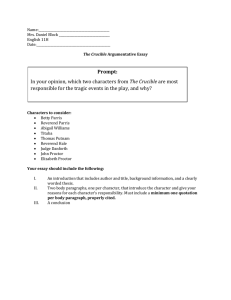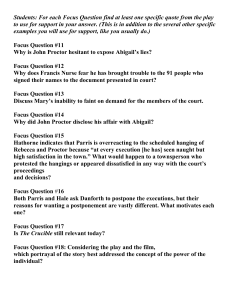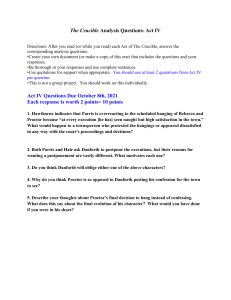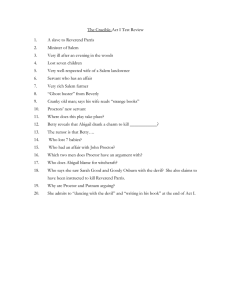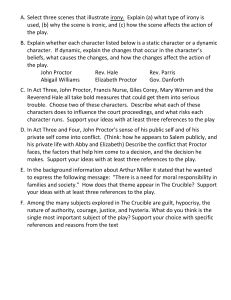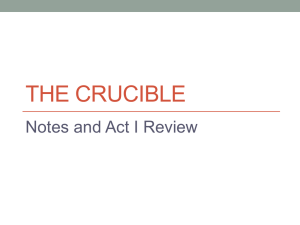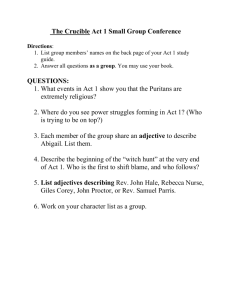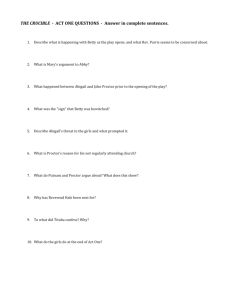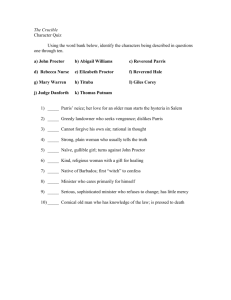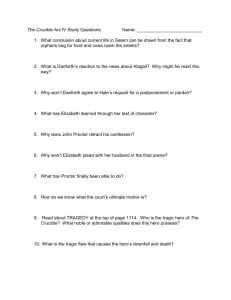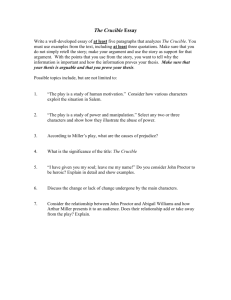The Crucible: Discussion Questions & Character Analysis
advertisement
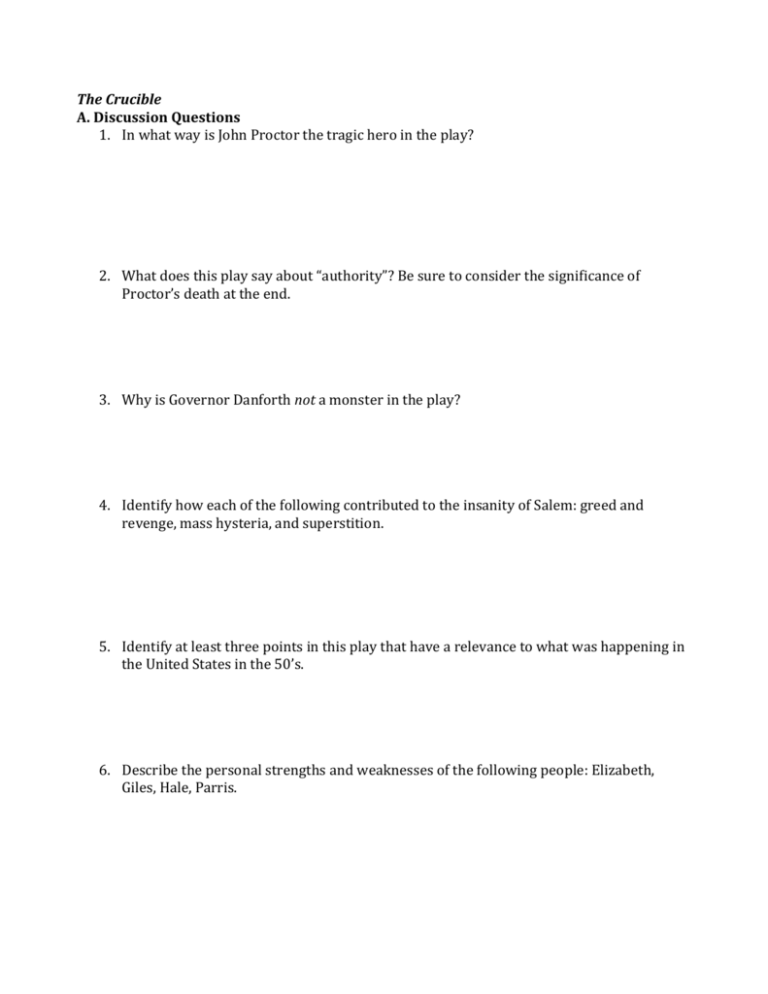
The Crucible A. Discussion Questions 1. In what way is John Proctor the tragic hero in the play? 2. What does this play say about “authority”? Be sure to consider the significance of Proctor’s death at the end. 3. Why is Governor Danforth not a monster in the play? 4. Identify how each of the following contributed to the insanity of Salem: greed and revenge, mass hysteria, and superstition. 5. Identify at least three points in this play that have a relevance to what was happening in the United States in the 50’s. 6. Describe the personal strengths and weaknesses of the following people: Elizabeth, Giles, Hale, Parris. 7. Abigail’s faults are quite obvious, but if you were given the job of her defense attorney, what arguments could you make in her favor? 8. A crucible is a pot, which, because it can withstand great heat, is used to melt iron and other metals. The word “crucible” is also used to describe a severe test or hard trial. With these possibilities in mind, why do you suppose Miller called his play The Crucible? B. Acts I-­IV Static/Dynamic Characters-­Identify whether the characters are static or dynamic and explain Example : Reverend Parris-­Static In the beginning, his concern is not for his daughter Betty’s health but for his reputation and position in the town. At the end of the play, he is still a guilty coward, whose only concern is for himself. 1. John Proctor 2. Abigail Williams 3. Elizabeth Proctor 4. Giles Corey 5. John Hale 6. Mary Warren 7. Deputy Governor Danforth 8. Tituba 9. Rebecca Nurse C. Climax-­Technical and Dramatic Identify each type of climax in the play and explain each. 1. Technical 2. Dramatic D. Conflicts: Internal and External Which characters experience conflict, and how does the conflict affect the play? E. Symbolism-­ Symbols may be characters, objects, or places in the play. Identify each symbol, and cite an incident from the play as evidence for your reasoning. Untouchable authority: Judge Hathorne-­‐ Hathorne is described as “…a bitter, remorseless Salem judge” (58). The townspeople fear his authority. 1. Goodness and godliness 2. Bondage, imprisonment 3. Parris’ materialism 4. Evil and Trickery 5. Forest 6. Voice of reason
